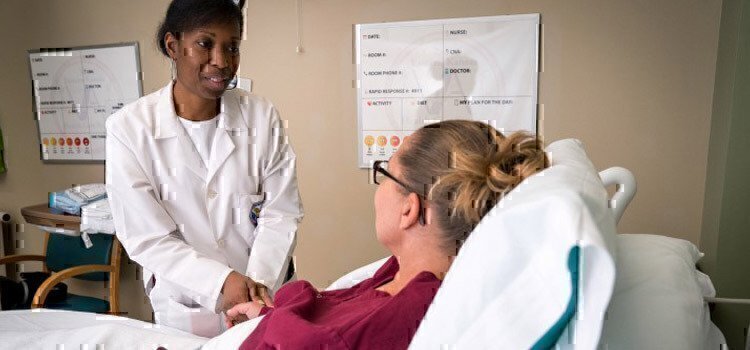Ask most of their employees why they work at VA. Their top reason is often the same: they want to improve the lives of Veterans.
When you work at VA, there are so many ways that you can make a difference. Whether it’s working on cutting edge research that improves their treatment options, proposing a simple process improvement to make access to care easier, or just lending a sympathetic ear.
VA encourages a culture of innovation. VA gives its employees the chance to lead the way and change lives at the only nationwide health care system in the U.S. Here are five of the ways they’ve helped make an impact for Veterans:
1.) Curing more than 100,000 Veterans of chronic hepatitis C infection.
Curing chronic hepatitis C infection and advanced liver disease, cutting death rates by up to 50%. Hepatology pharmacist Long Do helped get us there with a simple but innovative approach that significantly increased testing and treatment rates. As a member of VA Portland’s Hepatitis Innovation Team, Do recommended including hepatitis C treatment flyers in all prescription bags at the VA Portland pharmacy. Do and his colleagues also reached out to Veterans who were either homeless, lost to follow up, or lived in remote areas.
2.) Working to end diabetic limb loss.
Through a partnership with Podimetrics, at-risk, diabetic Veterans are given mats that measure the temperature of their feet to detect diabetic foot ulcers (DFUs) up to five weeks early. Since a DFU can lead to amputation or even death for the one-in-four Veterans who suffer from diabetes, this is a game changer. In 2019, we treated 75,000 DFUs, accounting for more than 80% of non-traumatic amputations in VA. Beyond costing more than $3.2 billion that year, amputations also take an incalculable toll on the Veterans affected.
3.) Bringing 3D printing to VA to improve individualized treatment.
Model kidneys made on 3D printers help physicians prepare for surgery at the VA Puget Sound Health Care System and save doctors up to two hours per surgery. That’s two hours that patients don’t have to be under anesthesia. Occupational therapists also use the printers to manufacture specialized, same-day hand orthotics, reducing the need for Veterans to make multiple visits for fittings. These are just two ways our national 3D printing network is improving care for Veterans. Spearheading the innovative use of 3D printers, Radiologist and Chair of the VHA 3D Printing Advisory Committee Beth Ripley, M.D., Ph.D., is a finalist for a 2020 Samuel J. Heyman Service to America Medal.
4.) Connecting Veterans to care no matter where they live.
Another effort up for a 2020 Samuel J. Heyman Service to America Medal is our Connected Care initiative, which includes telehealth options, mobile apps and other digital health solutions. These efforts help the nearly 3 million rural Veterans enrolled in VA health care receive treatment without having to travel to a VA facility. In 2019, more than 900,000 Veterans completed nearly three million telehealth appointments. VA Video Connect sessions increased by a whopping 235%, while VA’s patient portal, My HealtheVet, surpassed five million registered users. Veterans can use My HealtheVet to send providers secure electronic messages, access medical records, check lab results and refill prescriptions.
5.) Using artificial intelligence (AI) to help identify Veterans at risk of suicide or homelessness.
The Veterans Signals (VSignals) platform does more than survey Veterans, eligible dependents, caregivers and survivors on their VA experience. It also saves lives. AI automatically analyzes free text responses and routes them to the Veterans Crisis Line and National Call Center for Homeless Veterans when Veterans leave feedback indicating they might be at risk for suicide or homelessness. As of June 2019, over 691 suicide crises and 343 homelessness crises had been sent to VA experts who provided help to Veterans in need. The effort won a FedHealthIT Innovation Awards in 2019.
Work at VA
Are you ready to join a team devoted to making life better for the 9 million Veterans in our care?
- VISIT our innovation center.
- EXPLORE job openings near you.
- LEARN more about the benefits of working at VA.
- HEAR from current VA employees.
READ NEXT
11 Things to Keep You Occupied & Productive During Quarantine
7 Movies to Watch While Quarantined
22 of the Funniest Things Drill Instructors Have Ever Said











